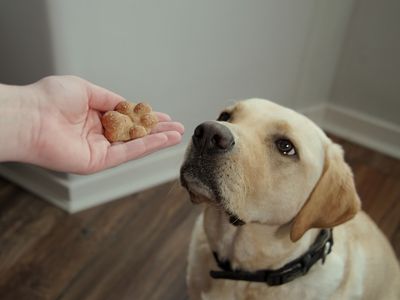
What it could mean if your dog is shaking
Eight reasons your dog might be shaking.
.jpg)
It can be unsettling or scary to notice your dog shaking. It’s probably harmless, but it could have a serious underlying cause.
Here are a few reasons your dog might be shaking or trembling, and what you should do about it.
Eight reasons why your dog might be shaking
1.Temperature
The most common reason for a dog shaking is the cold. Shivering when temperatures are low is a natural bodily reaction; it simply means your dog is trying to regulate their temperature.
If you think your dog is cold, try and reduce their exposure to low temperatures. Providing a cosy spot for them to curl up and stay warm is a good idea. You can also introduce them to a jumper or coat to wear in cold weather, which should reduce shivering or shaking.
Your dog may also shake if they become too hot or they’re experiencing heatstroke. Call your emergency vet right away if you think they may have signs of heatstroke. Your regular vet can also give you advice on managing your dog’s reaction to certain temperatures.
2. Pain or illness
Shaking can indicate your dog is experiencing pain, illness or infection. Something might be causing them to feel nauseous, or they might have eaten something that’s poisoned them.
If you have any concerns, particularly if the shaking is sudden or accompanied by other signs, speak to your vet as soon as possible.
3. Fear, anxiety or stress
Your dog might tremble or shake if they’re feeling scared, anxious or stressed. Possible triggers for dogs include fireworks, loud noises and separation anxiety.
There will usually be other behavioural clues if your dog is shaking for these reasons. If your dog’s worried, they might also pant, hide, pull their ears back or show the whites of their eyes.
If your dog seems anxious or distressed, consider what might be causing them to feel this way, and how you can help them to feel better. Speak to your vet to check your dog is in good health. Then, contact a qualified behaviourist for tailored support.
4. Seizures
Shaking can sometimes be caused by a seizure. If your dog’s shaking is accompanied by stiffening muscles, reduced mobility, falling over, or a loss of spatial awareness, they could be experiencing one. They may also lose control of their bladder and bowels.
Seizures can be brought on by conditions like epilepsy, or by eating something poisonous. If you think your dog is having a seizure, and they’re not already receiving treatment for a disorder, contact your emergency vet right away.
For more information and guidance related to seizures, speak to your local vet.

5. Age and arthritis
As they grow older, their muscles usually become weaker. This can cause trembling in the legs or body. Shaking in the legs when standing or walking could also indicate pain from arthritis in their joints. Speak to your vet if you suspect your dog might be experiencing this.
6. Ear discomfort
Shaking of the head could be down to your dog experiencing ear discomfort. They could have something stuck in their ear, like a grass seed, or have an ear infection.
Contact your local vet if you think your dog has something stuck in their ear and it’s causing them discomfort, or if you’re worried that their ear could be sore for any other reason.
7. To regulate their emotions
Your dog may ‘shake off’ after an interaction or event as a way of regulating their emotions. They may pause and do a full body shake, for example, when playing with another dog. It may also allow them to release some built-up adrenaline.
8. Drying off
Your dog may simply be trying to dry off after getting wet. Have they been outside recently, or had a wash? Perhaps something was spilled over them by accident.
The bottom line
The bottom line is there are many possible reasons why your furry best friend might be shaking. The important thing is to be alert to anything unusual or worrying, and speak to your local vet if you’re concerned.
Related articles

How to keep your dog safe and warm in cold weather







